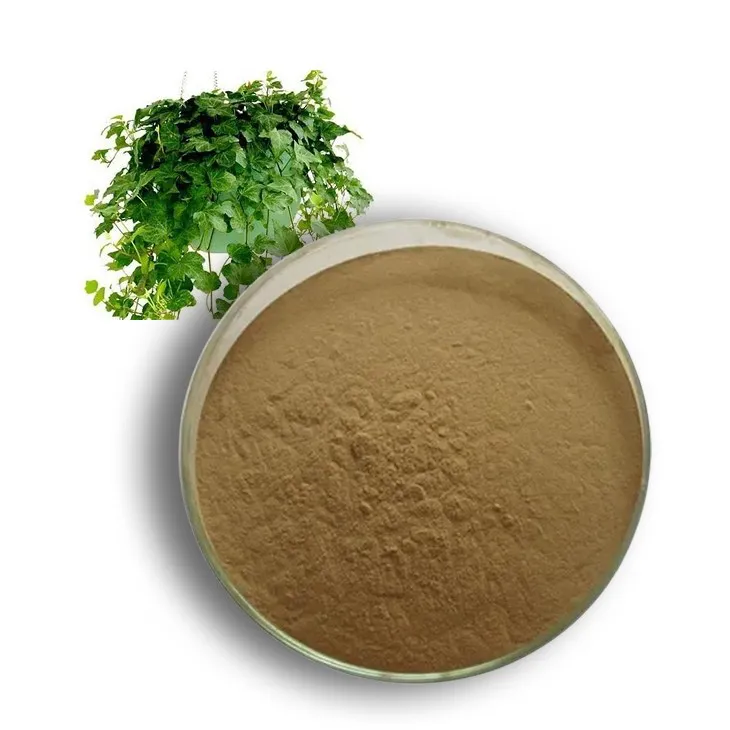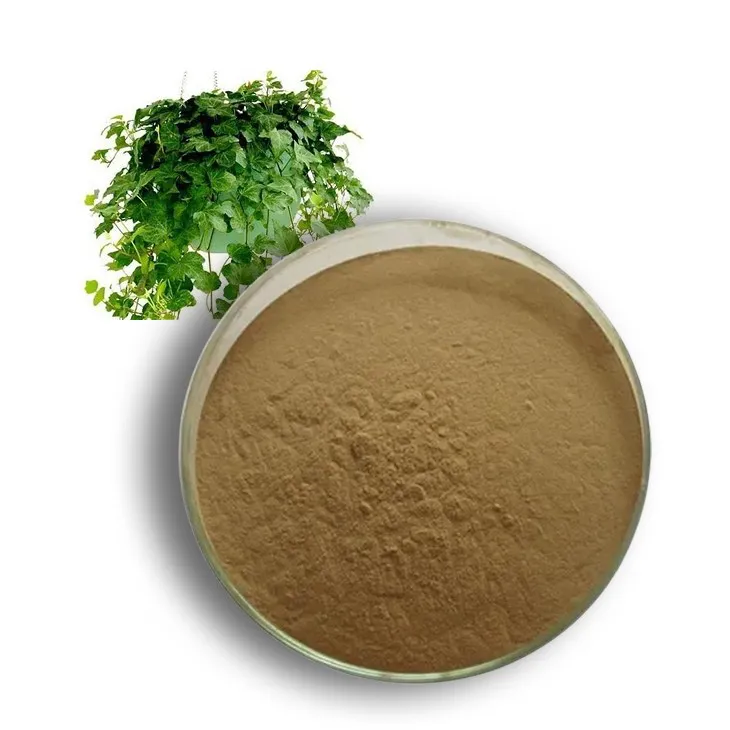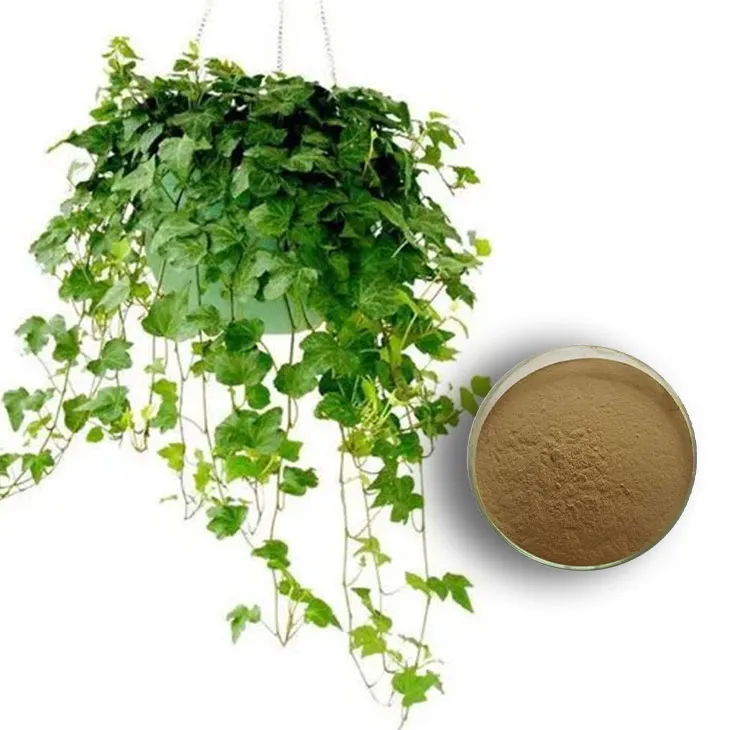- 0086-571-85302990
- sales@greenskybio.com
Use ivy extract to prevent diseases and enhance immunity.
2024-11-13

1. Introduction
In recent years, there has been a growing interest in natural substances with potential health - promoting properties. Ivy Extract is one such substance that has caught the attention of researchers and health - conscious individuals alike. Ivy, a common plant, has a long history of traditional use in herbal medicine. However, modern science is now beginning to uncover the specific mechanisms by which Ivy Extract may prevent diseases and enhance the body's immunity.

2. The Bioactive Compounds in Ivy Extract
Ivy extract contains a variety of bioactive compounds that are responsible for its potential health benefits. One of the key components is saponins. These compounds have been shown to have antioxidant, anti - inflammatory, and antimicrobial properties. Antioxidants are crucial for protecting the body against oxidative stress, which is associated with a wide range of diseases including cancer, heart disease, and neurodegenerative disorders. By neutralizing free radicals, antioxidants in ivy extract can help prevent cellular damage and maintain the integrity of cells.
Another important group of compounds in ivy extract are flavonoids. Flavonoids are known for their ability to modulate the immune system. They can enhance the activity of immune cells such as macrophages and lymphocytes, which play a vital role in the body's defense against pathogens. Additionally, flavonoids have anti - allergic properties, which may be beneficial for individuals with allergic conditions.

3. Interaction with the Body's Defense Mechanisms
3.1. Immune System Modulation
The immune system is a complex network of cells, tissues, and organs that work together to protect the body from foreign invaders. Ivy extract can influence the immune system at multiple levels. For example, it can stimulate the production of cytokines, which are signaling molecules that regulate immune responses. By increasing the production of certain cytokines, ivy extract can enhance the activation and function of immune cells.
Moreover, ivy extract may also help to balance the immune system. In some cases, the immune system can become overactive, leading to autoimmune diseases where the body attacks its own tissues. On the other hand, a weakened immune system can make the body more susceptible to infections. Ivy extract has the potential to regulate the immune system to prevent these imbalances, ensuring that it functions optimally.
3.2. Anti - Inflammatory Effects
Chronic inflammation is a key factor in the development of many diseases, including arthritis, diabetes, and cardiovascular disease. Ivy extract's anti - inflammatory properties can help to reduce inflammation in the body. The bioactive compounds in ivy extract can inhibit the production of pro - inflammatory mediators such as cytokines and prostaglandins. This, in turn, can alleviate the symptoms associated with inflammatory diseases and may also prevent the progression of these diseases.

4. Studies on Disease Prevention
4.1. Respiratory Diseases
Respiratory diseases are a major cause of morbidity and mortality worldwide. Some studies have suggested that ivy extract may be beneficial in preventing and treating respiratory infections. For example, in vitro studies have shown that ivy extract has antimicrobial activity against common respiratory pathogens such as Streptococcus pneumoniae and Haemophilus influenzae. In addition, clinical trials have reported that ivy extract can help to relieve cough and improve lung function in patients with chronic bronchitis.
Another area of interest is the potential of ivy extract in preventing asthma. Asthma is a chronic inflammatory disease of the airways, and the anti - inflammatory properties of ivy extract may be useful in reducing airway inflammation and improving asthma symptoms. However, more research is needed to fully understand the effectiveness of ivy extract in asthma prevention and treatment.
4.2. Cardiovascular Diseases
Cardiovascular diseases are the leading cause of death globally. Ivy extract may play a role in preventing these diseases through its antioxidant and anti - inflammatory properties. Oxidative stress and inflammation are important factors in the development of atherosclerosis, which is a major underlying cause of cardiovascular diseases. By reducing oxidative stress and inflammation, ivy extract can help to prevent the formation of atherosclerotic plaques and reduce the risk of heart attacks and strokes.
Some animal studies have shown that ivy extract can improve lipid profiles by reducing levels of LDL - cholesterol (the "bad" cholesterol) and increasing levels of HDL - cholesterol (the "good" cholesterol). However, human studies are required to confirm these findings and to determine the appropriate dosage of ivy extract for cardiovascular protection.
4.3. Cancer
Cancer is a complex disease with multiple factors contributing to its development. While ivy extract is not a cure for cancer, it may have a role in cancer prevention. The antioxidant properties of ivy extract can help to protect cells from DNA damage, which is a key step in the initiation of cancer. In addition, some studies have suggested that the bioactive compounds in ivy extract may have anti - proliferative effects on cancer cells, inhibiting their growth and spread.
However, it is important to note that most of the research on ivy extract and cancer is in the early stages, and more in - depth studies are needed to understand its potential role in cancer prevention and treatment. These studies should include investigations into the specific types of cancer that may be affected by ivy extract, as well as the optimal dosage and administration methods.
5. Impact on Overall Immunity
Enhancing overall immunity is crucial for maintaining good health and preventing diseases. Ivy extract can contribute to overall immunity in several ways. As mentioned earlier, its bioactive compounds can stimulate the immune system, increasing the activity of immune cells. This can help the body to better respond to infections and other challenges.
Furthermore, the antioxidant and anti - inflammatory effects of ivy extract can also support overall immunity. By reducing oxidative stress and inflammation, the body's immune system can function more efficiently. This is because oxidative stress and inflammation can impair the function of immune cells and disrupt the normal immune response.
In addition to its direct effects on the immune system, ivy extract may also have indirect benefits for immunity. For example, by improving lung function and preventing respiratory infections, it can reduce the risk of secondary infections that can further weaken the immune system. Similarly, by preventing cardiovascular diseases, it can ensure proper blood circulation, which is essential for the delivery of immune cells and nutrients throughout the body.
6. Considerations and Precautions
While ivy extract shows promise in disease prevention and immunity enhancement, there are some considerations and precautions to keep in mind. Firstly, it is important to note that not all ivy extracts are created equal. The quality and composition of the extract can vary depending on the source of the ivy, the extraction method, and the manufacturing process. Therefore, it is essential to choose a high - quality ivy extract from a reputable source.
Secondly, ivy extract may interact with certain medications. For example, it may potentiate the effects of anticoagulant medications, increasing the risk of bleeding. It is therefore important to consult a healthcare provider before using ivy extract, especially if you are taking any medications.
Finally, although ivy extract is generally considered safe when used as directed, some individuals may experience side effects such as nausea, vomiting, or allergic reactions. If you experience any adverse reactions after using ivy extract, discontinue use immediately and seek medical attention.
7. Conclusion
In conclusion, ivy extract has the potential to be a valuable natural remedy for disease prevention and immunity enhancement. Its bioactive compounds interact with the body's defense mechanisms in multiple ways, including immune system modulation, anti - inflammatory effects, and antioxidant activity. While there is evidence to suggest that ivy extract may be beneficial in preventing various diseases such as respiratory diseases, cardiovascular diseases, and cancer, more research is needed to fully understand its mechanisms of action and to determine the optimal dosage and administration methods.
When considering the use of ivy extract, it is important to take into account the considerations and precautions mentioned above. By doing so, individuals can make an informed decision about whether ivy extract may be a suitable addition to their natural health regimen.
FAQ:
What are the bioactive compounds in ivy extract?
Ivy extract contains various bioactive compounds. Some of the important ones include saponins. These saponins are believed to play a role in its potential health benefits. Additionally, flavonoids are also present in ivy extract, which may contribute to its antioxidant properties and interaction with the body's defense mechanisms.
How does ivy extract interact with the body's defense mechanisms?
The bioactive compounds in ivy extract, such as saponins and flavonoids, can interact with the immune cells in the body. They may modulate the activity of macrophages, which are important cells in the immune system responsible for engulfing and destroying pathogens. Ivy extract may also influence the production of cytokines, which are signaling molecules that regulate the immune response.
What diseases can ivy extract potentially prevent?
Studies have suggested that ivy extract may have a potential role in preventing respiratory diseases. For example, it may help in reducing the severity and frequency of coughs and colds. There is also some evidence indicating its possible preventive effect against certain inflammatory diseases. However, more research is still needed to firmly establish its effectiveness in preventing these diseases.
Is it safe to use ivy extract for immunity enhancement?
When used in appropriate amounts, ivy extract is generally considered safe for most people. However, some individuals may be allergic to it. It is always advisable to consult a healthcare professional before starting any new supplement, especially for those with pre - existing medical conditions or those who are pregnant or breastfeeding.
How long does it take for ivy extract to show an effect on immunity?
The time it takes for ivy extract to show an effect on immunity can vary from person to person. Factors such as individual health status, dosage, and the type of immune response being measured play a role. In general, it may take several weeks to months of consistent use to notice any significant changes in the immune system.
Related literature
- The Potential of Ivy Extract in Immunomodulation: A Review"
- "Ivy Extract and Respiratory Health: Scientific Insights"
- "Bioactive Compounds in Ivy Extract: Implications for Disease Prevention"
- ▶ Hesperidin
- ▶ citrus bioflavonoids
- ▶ plant extract
- ▶ lycopene
- ▶ Diosmin
- ▶ Grape seed extract
- ▶ Sea buckthorn Juice Powder
- ▶ Beetroot powder
- ▶ Hops Extract
- ▶ Artichoke Extract
- ▶ Reishi mushroom extract
- ▶ Astaxanthin
- ▶ Green Tea Extract
- ▶ Curcumin Extract
- ▶ Horse Chestnut Extract
- ▶ Other Problems
- ▶ Boswellia Serrata Extract
- ▶ Resveratrol Extract
- ▶ Marigold Extract
- ▶ Grape Leaf Extract
- ▶ blog3
- ▶ blog4
- ▶ blog5
-
Organic Tongkat Ali extract powder factory.
2024-11-13
-
How to make powder with ashwagandha extract.
2024-11-13
-
Rosehip extract manufacturers from China.
2024-11-13
-
The best cat's claw extract in nature.
2024-11-13
-
Chinese Dandelion Leaf Extract Suppliers.
2024-11-13
-
American Ginseng Root Extract
2024-11-13
-
Scutellaria Extract
2024-11-13
-
Peppermint Extract Powder
2024-11-13
-
Genistein
2024-11-13
-
Mulberry leaf Extract
2024-11-13
-
Oat Straw Extract Powder
2024-11-13
-
Soy Extract
2024-11-13
-
Sea buckthorn oil
2024-11-13
-
Hedyotis Diffusa Extract
2024-11-13
-
Lycopene
2024-11-13





















